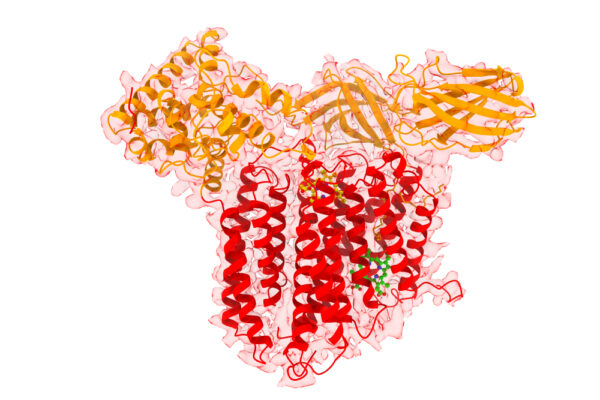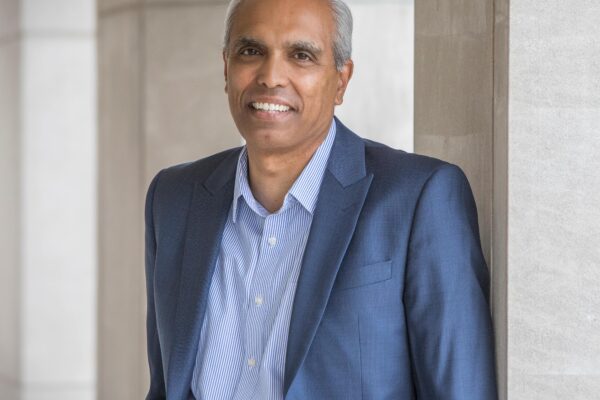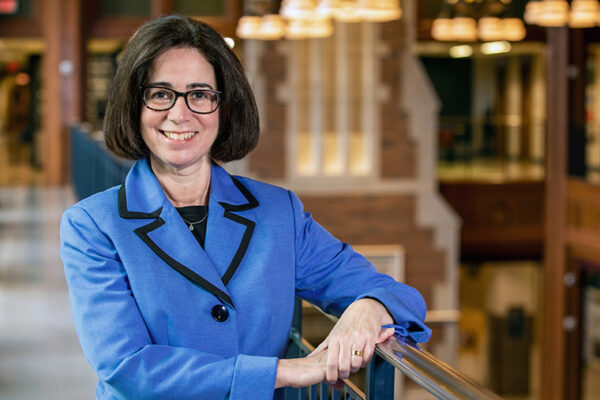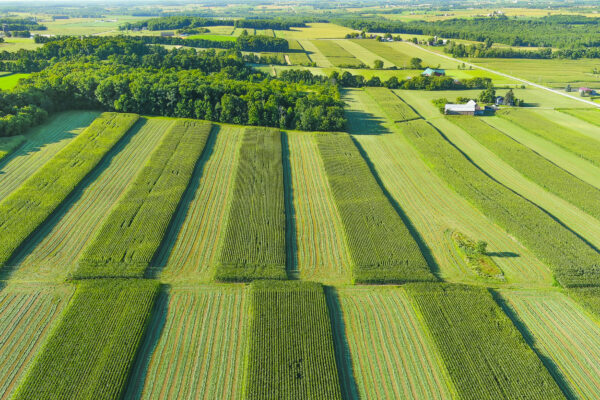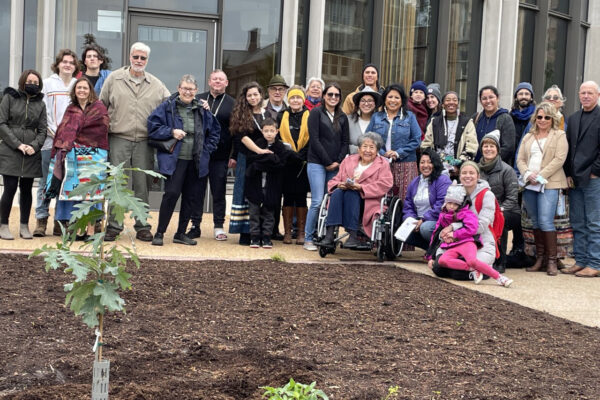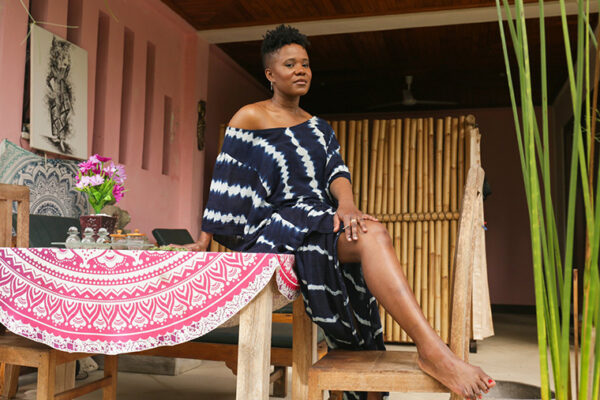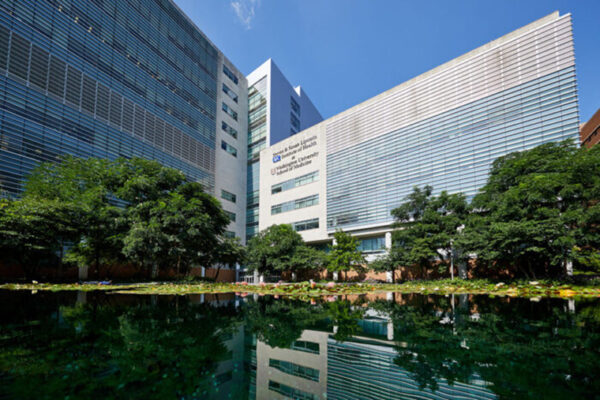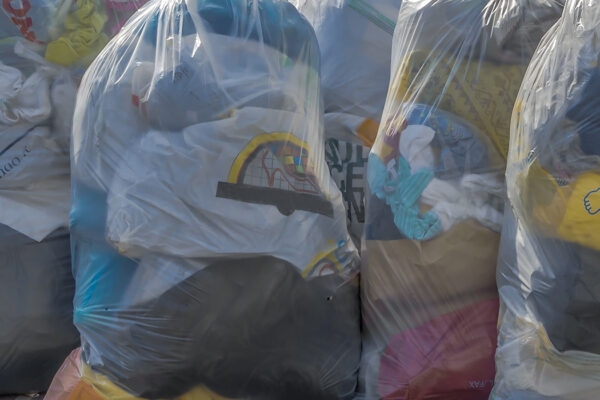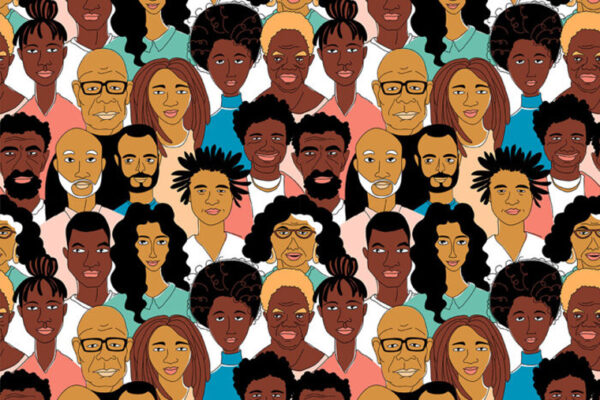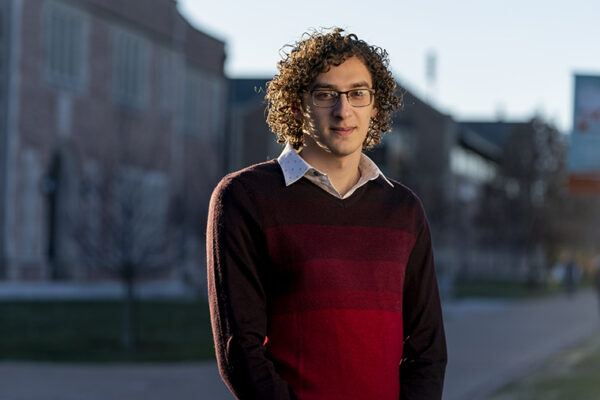A pathway emerges
Scientists at Washington University in St. Louis described for the first time the structure of a bifunctional protein, called CcsBA, that transports heme and attaches it to cytochromes. The study led by Robert Kranz, professor of biology in Arts & Sciences, captured two conformational states of CcsBA, a bacterial and chloroplast protein, allowing researchers to characterize the enzyme mechanism.
International team finds new mechanism critical for formation of membrane vesicles
A collaboration between Washington University in St. Louis, Université de Montréal and McGill University discovers a new importance of biomolecular condensates.
Amy Kweskin named executive vice chancellor for finance, CFO
Amy B. Kweskin, vice chancellor for finance and chief financial officer, has been promoted to executive vice chancellor for finance and will continue as chief financial officer, announced Chancellor Andrew D. Martin. The appointment is effective Jan. 1.
Mitigating environmental impact of herbicides
Research from the lab of Kimberly Parker at the McKelvey School of Engineering looks at the interactions of different herbicides and what they mean for herbicide drift.
Rare trail marker tree planted at WashU
In April 2008, an oak that had guided travelers for nearly three centuries collapsed. Today, its spirit endures on the Washington University campus, maintaining an ancient practice of human connection with nature.
A passion for design
Anastasia White never forgot the thrill of seeing her designs on stage at the Edison Theatre, or the lessons learned studying fashion at the Sam Fox School of Design & Visual Arts. Today, her company, crescent bleu, creates sustainable swimwear.
NIH research funding to School of Medicine continues explosive expansion in 2021
Researchers at the School of Medicine were awarded $575.8 million in funding from the National Institutes of Health (NIH) in federal fiscal year 2021, according to the School of Medicine’s 2021 State of the School Report. This is an all-time high for the school.
Research confronts a costly dilemma for nonprofits: unwanted donations
New Olin Business School research suggests strategies for how nonprofits can handle the issue of costly, unwanted donations while minimizing the risk of donor backlash.
Racial equity in Alzheimer’s research focus of $7 million in grants
Two research teams at Washington University — one led by Joyce Balls-Berry; the other led by Darrell Hudson and Ganesh Babulal — have received grants totaling $7 million to advance racial equity in Alzheimer’s disease research.
Senior Kuziez named Marshall Scholar
Senior Abdullah Kuziez, 21, has received the prestigious Marshall Scholarship, which provides American students the opportunity to earn an advanced degree in the United Kingdom. Kuziez plans to study biomedical engineering at the University of Oxford as part of his ongoing search for cancer treatments that are both effective and accessible.
View More Stories
